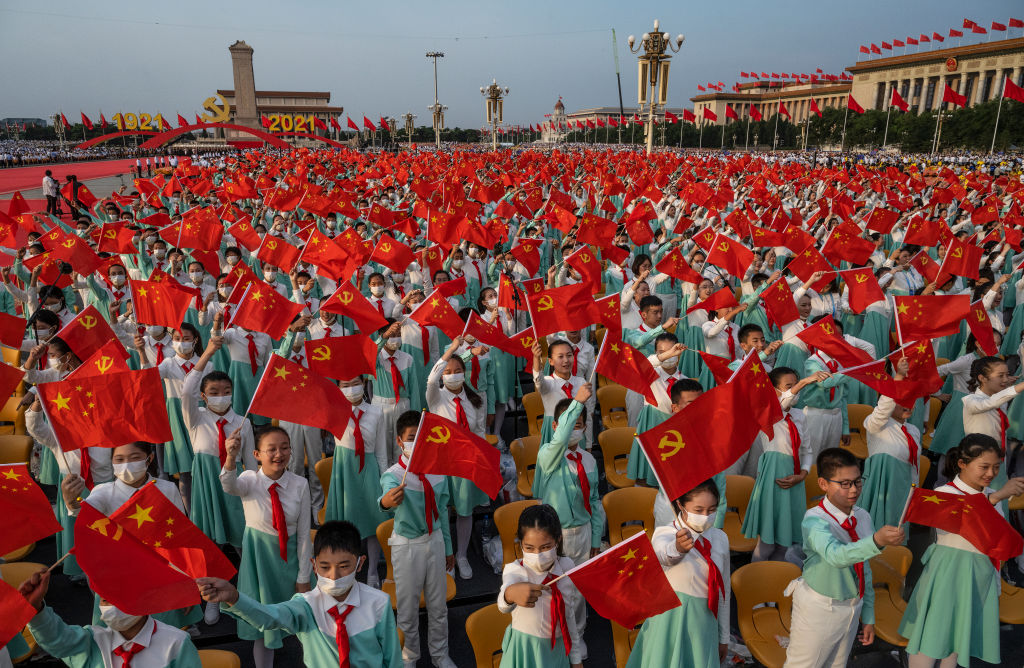
As I’ve previously argued on this forum, conceptions of the virtues of a historically China-centric regional order are deeply ingrained in Chinese society, including among a new generation taught from infancy to resist external threats to China’s great rejuvenation.
As we enter something of a new and perhaps less consistently hostile phase in our bilateral relationship with China, it’s worth taking stock of how we think ideological considerations practically impact China’s international relationships, including China’s views and actions with respect to Australia.
We should have lots of questions about this, even if we know the answers are going to be hard to find.
While it’s healthy (and a practical necessity in busy times) for policy practitioners in Canberra to avoid hovering too long over the black box of Chinese decision-making visa-vis Australia, those of in the peanut gallery have more leeway to do so and should have a guess at its contents from time to time.
The extent to which China’s statecraft is shaped by Beijing’s belief in the superiority of China’s political model is one question we could probably tackle more earnestly.
Does this belief meaningfully shape China’s day-to-day assessments of its external environment? Or is it for the most part an artificial construct designed to be occasionally exaggerated by China’s leaders for domestic-political purposes, meaning we can safely discount it as a serious vector in our relations with China?
It has always seemed to me that China’s belief that its political model will eventually prevail over all others, certainly the liberal democratic alternative, is a real and enduring source of Beijing’s self-confidence in China as an international actor.
China’s leaders believe it and need to because it helps them deal with everything going on around them.
For this group of Chinese leaders, all serious questions about power and cooperation should, and often need to be framed in terms of an existential struggle. It is a struggle not just against external powers seeking to prevent China from assuming its historically dominant position in the region, but also a struggle against those standing in the way of China exporting its political model to the region and beyond.
Because we don’t have a long history of conflict with China, as many other regional actors do, it is the latter consideration that Beijing would care about most with respect to Australia. Being able to easily influence a middle-sized liberal democratic country with an open society and ideological alignment with its major rival proves to China that’s its model is indeed the best.
And not being able to impose such influence undermines that confidence.
If this is something akin to China’s current mindset with respect to Australia, which I suspect it is, it follows that China’s leaders’ views of us are more heavily influenced by ideological factors than we had previously thought.
Some of our analytical frameworks and assumptions with respect to China that overstate tactical and material motivations may need to be requestioned.
One of those is the view that China’s leaders don’t care about what we say or do because we are a benign middle power with no real means to shape the current regional security environment. If only we had more power to project we could get more attention from Beijing, so the logic goes.
Until then we are hemmed into the economic and trade lane.
This view is misguided because it presupposes that hard power is the only way to threaten China’s interests and demonstrate our resolve.
This is clearly not the case.
If you think about it, and particularly in the terms set out above, what could be more threatening to China at this stage of its development than a middle power with limited power projection capabilities withstanding a prolonged campaign of economic coercion from the dominant power in the region, and emerging pretty much unscathed?
This is exactly what we did.
No acquisition of military hardware could have sent a clearer message to China than that about Australian resolve, and that is something to hang our hat on.
More recently, sharply pointed warnings from China’s Ambassador to Australia about the level of acceptable Australian engagement with Taiwan’s newly elected president provide further evidence that ideological considerations influence Beijing’s perceptions of us in serious ways.
Australia is fundamentally adaptable and resilient. We’ve already demonstrated that we can more appropriately balance economic and national security considerations vis-a-vis China, and we are more than capable of adding an ideological layer to our assessments of China’s international behaviour and whatever is going on inside China itself.
We need to though, because being able to assess China from multiple angles at once will give us an important additional tool to help us deal with whatever challenges emerge in an increasingly contested Asia.
And, let’s face it, we’re probably going to need the whole kit.

